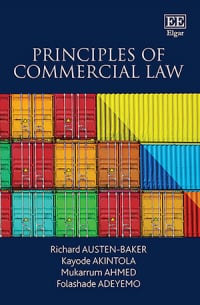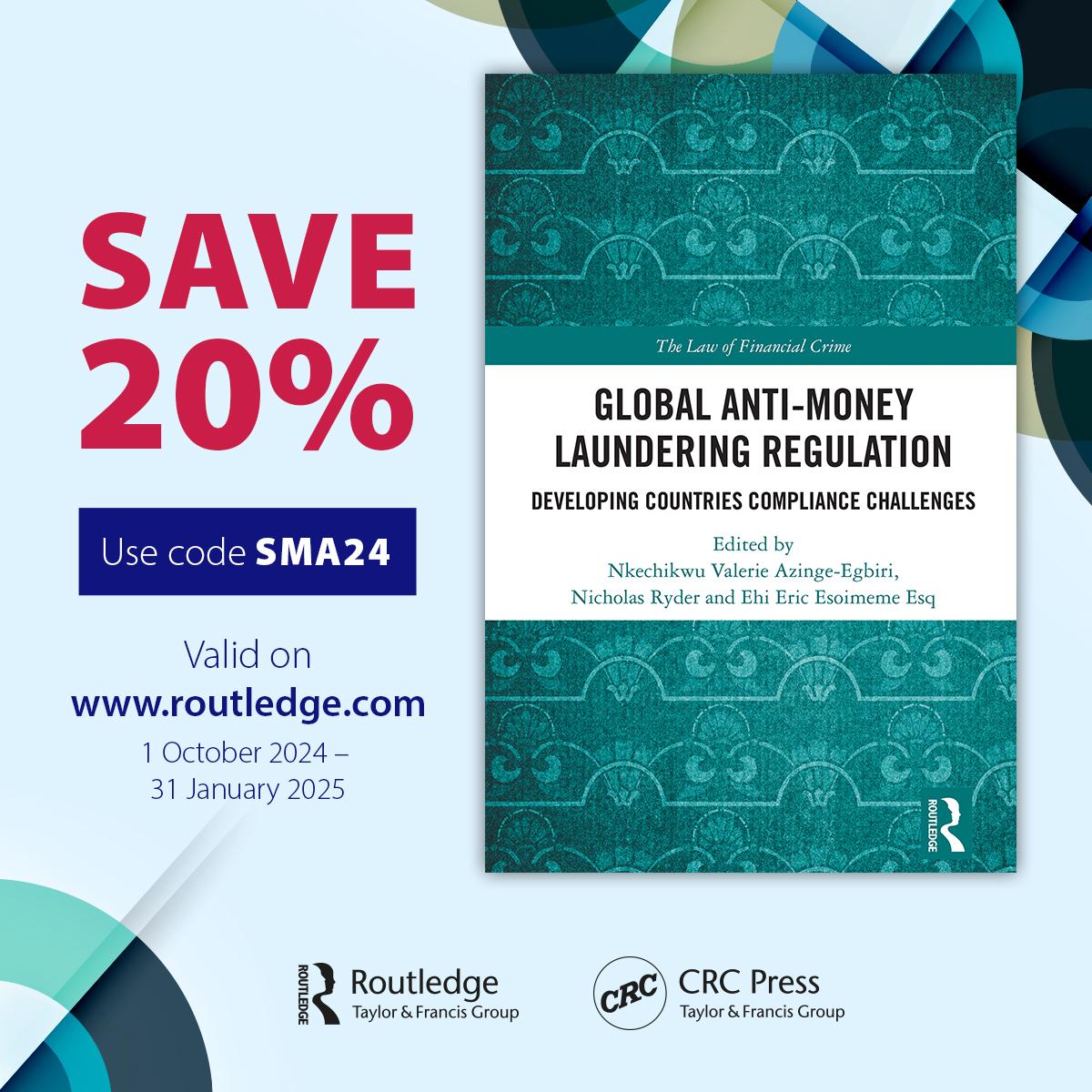Publications
The Global South Dialogue on Economic Crimes Network seeks to advance dialogue, research, and capacity on economic and financial crimes
1st Edition
Global Anti-Money Laundering Regulation
Developing Countries Compliance Challenges
Edited By Nkechikwu Azinge-Egbiri, Nicholas Ryder, Ehi Eric Esoimeme
Developed countries created the Financial Action Task Force (FATF) to combat money laundering and terrorist financing (ML/TF) globally. Expectedly, the FATF’s standards mirror existing banking regulations within the G7 countries. Yet, the standards apply to all countries irrespective of the limited ML/TF risks they pose to the global economy, their weak pre-conditions for effective regulation, and their non-involvement in the FATF’s framing.
Still, such countries – mainly within the Global South, have worked significantly hard to amplify their compliance with the regime due to fears of the repercussions of their non-compliance. Why is this?
This co-edited book, Global Anti-Money Laundering Regulation: Developing Countries Compliance Challenges, explores the politics of ML/TF regulation in several global south countries across Africa and the Small Island States. It demonstrates how the global ML/TF regulation is an implicitly superior legal regime where the Global South must comply irrespective of their perception of the FATF’s legitimacy challenges. It shows that beyond exogenous factors such as neo-colonialism, endogenous factors such as weak institutions and corruption undermine the compliance trajectory of the global south. Furthermore, it analyses the unintended consequences of transplanting FATF standards into diverse legal and cultural contexts.
This co-edited book contributes to our understanding of the challenges of transplantation from the global north and how the global south is steering within the constraints created by the FATF. The book advocates for a comprehensive understanding of the nuanced compliance challenges of developing countries. It proposes practical solutions to address them, emphasizing the importance of risks understanding, accountability, capacity-building, and coordination in achieving effective AML/CFT measures.
Law and Regulation of Mobile Payment Systems
Issues arising 'post' financial inclusion in Kenya
By Joy Malala
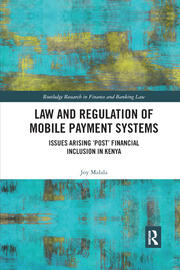
The Home in the Digital Age
Edited By Antonio Argandoña, Joy Malala, Richard Peatfield
The Home in the Digital Age is a set of multidisciplinary studies exploring the impact of digital technologies in the home, with a shift of emphasis from technology to the people living and using this in their homes.
The book covers a wide variety of topics on the design, introduction and use of digital technologies in the home, combining the technological dimension with the cognitive, emotional, cultural and symbolic dimensions of the objects that incorporate digital technologies and project them onto people’s lives. It offers a coherent approach, that of the home, which gives unity to the discussion.
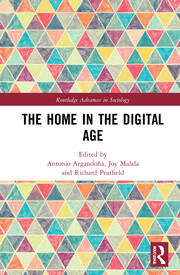
Regulating and Combating Money Laundering and Terrorist Financing
The Law in Emerging Economies
By Nkechikwu Valerie Azinge-Egbiri
This book analytically reviews the impact of the global anti-money laundering and counter-terrorist financing (AML/CFT) framework on the compliance trajectory of a number of jurisdictions to this framework.
This book offers a new direction on the impact of global AML/CFT standards on ACs/EEs and contributes to the understanding of the conditions under which the global standards are likely to facilitate proactive compliance within these blocs of countries. As such it will be a valuable resource for academics, researchers and policy-makers working in this area.
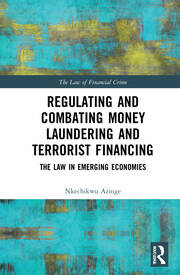
Banking Regulation in Africa
The Case of Nigeria and Other Emerging Economies
By Folashade Adeyemo
There is little literature on the development of banking regulation in Nigeria, or the scope of powers of the Central Bank of Nigeria, which is its core banking sector regulator. The critical impetus of this book is to contribute to the literature of this area, with a detailed exploration of the Nigerian regulatory architecture. In addition, the book also engages in a comparative analysis with two emerging economies in Africa: South Africa and Kenya. It also considers the UK and the US as comparator jurisdictions in light of their regulatory responses to the global financial crisis of 2008. This book contributes to the ongoing discourse in this area by exploring, in detail, the theoretical underpinnings of regulation and supervision, to determine whether there is an understanding of what constitutes effective regulation in these jurisdictions.
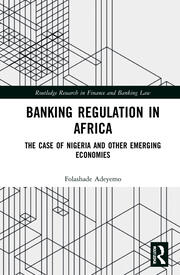
Bank Insolvency Law in Developing Economies
Edited By Kayode Akintola, Folashade Adeyemo
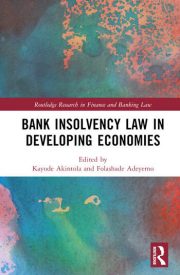
Principles of Commercial Law
By Richard Austen-Baker, Senior Lecturer in Law, Kayode Akintola, Lecturer in Law, Mukarrum Ahmed, Lecturer in Law, Lancaster University Law School, Lancaster University and Folashade Adeyemo, Lecturer in Law, University of Reading, UK
